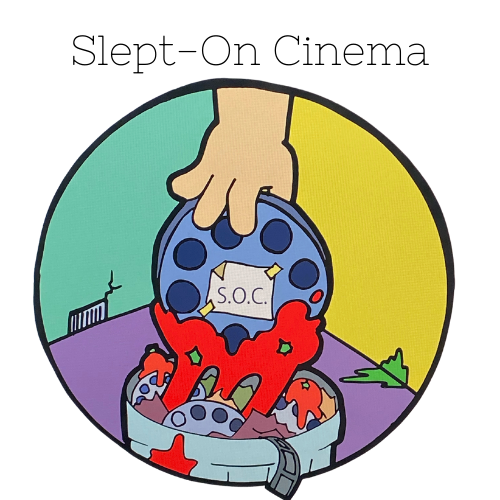Unraveling the Mystery: Episode 13's Exploration of 'Femme Fatale'
Greetings, movie lovers! Welcome back to another episode of Slept-On Cinema, where we dive deep into films that have slipped through the cracks of mainstream attention. In Episode 13, we're peeling back the layers of Brian De Palma's 2002 thriller, "Femme Fatale." This film, known for its twisting narrative and visual flair, is a quintessential De Palma work, combining suspense, sensuality, and the director's signature style.
"Femme Fatale" stars Rebecca Romijn as Laure Ash, a woman involved in a daring jewel heist during the Cannes Film Festival who then tries to escape her past life only to be ensnared in a web of deceit, identity, and seduction. The film is a labyrinth of time shifts and narrative twists, keeping viewers guessing until the very end.
In this episode, we delve into the complexity and artistry of "Femme Fatale." We discuss how De Palma uses the film to play with the conventions of the noir genre, particularly the trope of the femme fatale. The movie is a modern take on an age-old archetype, reimagining the femme fatale's role in a story that's as much about destiny and morality as it is about theft and double-crosses.
We examine the performances, particularly Romijn's, noting how her portrayal of Laure walks a fine line between vulnerability and calculation, making her a compelling and enigmatic protagonist. The supporting cast, including Antonio Banderas as a paparazzo drawn into Laure's orbit, also receives attention as we dissect how each character adds depth to the twisting plot.
De Palma's direction is another highlight of our discussion. Known for his elaborate set pieces and camera work, "Femme Fatale" includes several signature De Palma sequences that are both visually arresting and integral to the film's story. We break down some of these key scenes, analyzing how they contribute to the film's atmosphere and narrative structure.
Despite its initial mixed reception, we explore how "Femme Fatale" has gained appreciation over time as a cult classic. Its complex narrative, thematic depth, and stylistic boldness have garnered it a following among fans of De Palma and noir cinema. We discuss the film's place in the broader context of early 2000s cinema and how it represents both a continuation and a departure from traditional noir films.
As always, we wrap up the episode with our "Slept-On Scores," rating the film's direction, performances, story, and overall impact. Whether you're a long-time fan or new to "Femme Fatale," it's a film that offers plenty to discover and discuss.
So, join us as we untangle the intricate plot and celebrate the cinematic craftsmanship of "Femme Fatale." Stay tuned for more episodes as we continue to explore and honor the films that deserve a second look. Until then, keep your eyes peeled and your minds open — you never know what hidden gem we'll uncover next!

